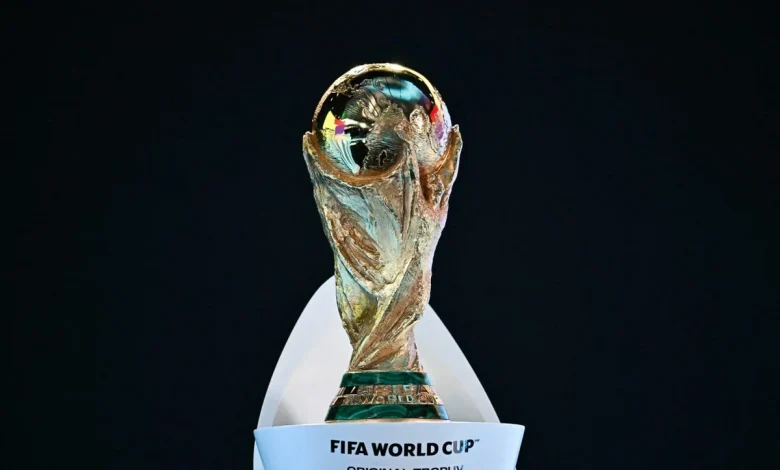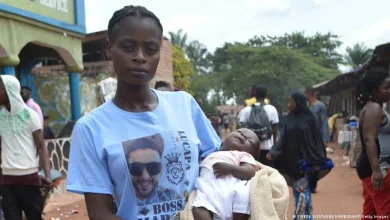2030 World Cup: South America propose ‘dream’ 64-team tournament, but how likely is it to happen? – The Athletic

Alejandro Dominguez, the president of South American soccer’s ruling body CONMEBOL, has doubled down on his “dream” of the 2030 World Cup being expanded to 64 nations.
Dominguez, a FIFA vice-president, says the idea will be a “one-time only” expansion to celebrate the tournament’s centenary edition, with the first World Cup having been held in Uruguay in 1930.
The competition has been expanded to a 48-team format for 2026, co-hosted by the U.S., Canada and Mexico, an increase from the 32-nation version that ran from 1998 to 2022.
It has already been confirmed that the 2030 tournament will be spread across six nations and three continents: 1930 hosts Uruguay, 2022 winners Argentina and Paraguay — the home of CONMEBOL’s offices — are currently scheduled to host one match apiece at the start of the competition, with the remaining 101 games split between Morocco, Portugal and Spain.
“In 100 years, special things must be done, that’s why we believe this is an opportunity to do something different, to have a World Cup that unites the world, just once,” Dominguez said at a press conference, as cited by press agency EFE.
The 53-year-old Paraguayan reiterated the increase of teams would be “for this one time only” and would allow the centenary to “reach more people.”
“I dream of a World Cup with 64 teams,” Dominguez said. “I believe it’s a great opportunity to do something that unites the world, to bring football to more people, and to have a completely different kind of celebration.”
Dominguez called on the sport to “open the debate and study” his proposal for the 2030 tournament.
Why does CONMEBOL want an expanded tournament?
The idea was first proposed by Uruguayan football official Ignacio Alonso at a FIFA Council meeting in March this year.
FIFA, world football’s governing body, said in a statement to The New York Times that the proposal from Alonso was “spontaneously raised” during the “any other business” section near the end of the meeting.
By hosting matches at the 2030 tournament, South America will be locked out from hosting duties until at least 2042 as FIFA’s hosting stipulations dictate that a continent can only stage the World Cup once every three editions.
This means that South America would be the primary host for just one World Cup in a 64-year period, the 2014 tournament in Brazil.
An expanded tournament could mean that Uruguay, Argentina and Paraguay could host a full group each, rather than just a match.
Why does the idea face opposition?
Expanding the World Cup to 64 teams would see more than a quarter of FIFA’s 210 men’s international sides compete, and would risk rendering many regional qualification processes meaningless.
Six of the 10 CONMEBOL nations already qualify automatically for a 48-team finals, with an additional play-off qualification spot.
In April, UEFA president Aleksander Ceferin dismissed the proposal as a “bad idea”, saying it would damage both the tournament itself and Europe’s qualifying competition.
His North American counterpart, CONCACAF president Victor Montagliani, holds a similar view, believing the proposed expansion would be moving too quickly.
“It’s not a great idea,” he said. “We haven’t even kicked the ball for the 48-team format. They can study all they want, but it just doesn’t feel right.”
UEFA president Ceferin spoke against the idea of a 64-team World Cup at his association’s congress in April (PREDRAG MILOSAVLJEVIC/AFP via Getty Images)
But what do FIFA think?
Any expansion would need to be debated and approved by the FIFA council, of which CONMEBOL president Dominguez is one of 37 members, which meets at least twice each year to discuss key issues around its calendar and tournaments.
In September, a FIFA spokesperson, responding to questions from The Athletic, played down the notion that any decision had been made, stating that the body had a duty to analyse any serious proposal made by member nations.
“All ideas are welcome, but no specific ideas have been discussed,” FIFA general secretary Mattias Grafstrom said in September.
Gianni Infantino, FIFA’s president, has not addressed the issue publicly.
Infantino, in a video broadcast to a FIFA meeting with South American football leaders in September, said ahead of the 2030 World Cup: “Today, we really start working together as a team to make history. Working together to see how we can do something the world will not forget, because the people deserve it.”
Infantino and FIFA have previously commissioned a feasibility study into holding the World Cup every two years, rather than four, before shelving the proposed alteration.




